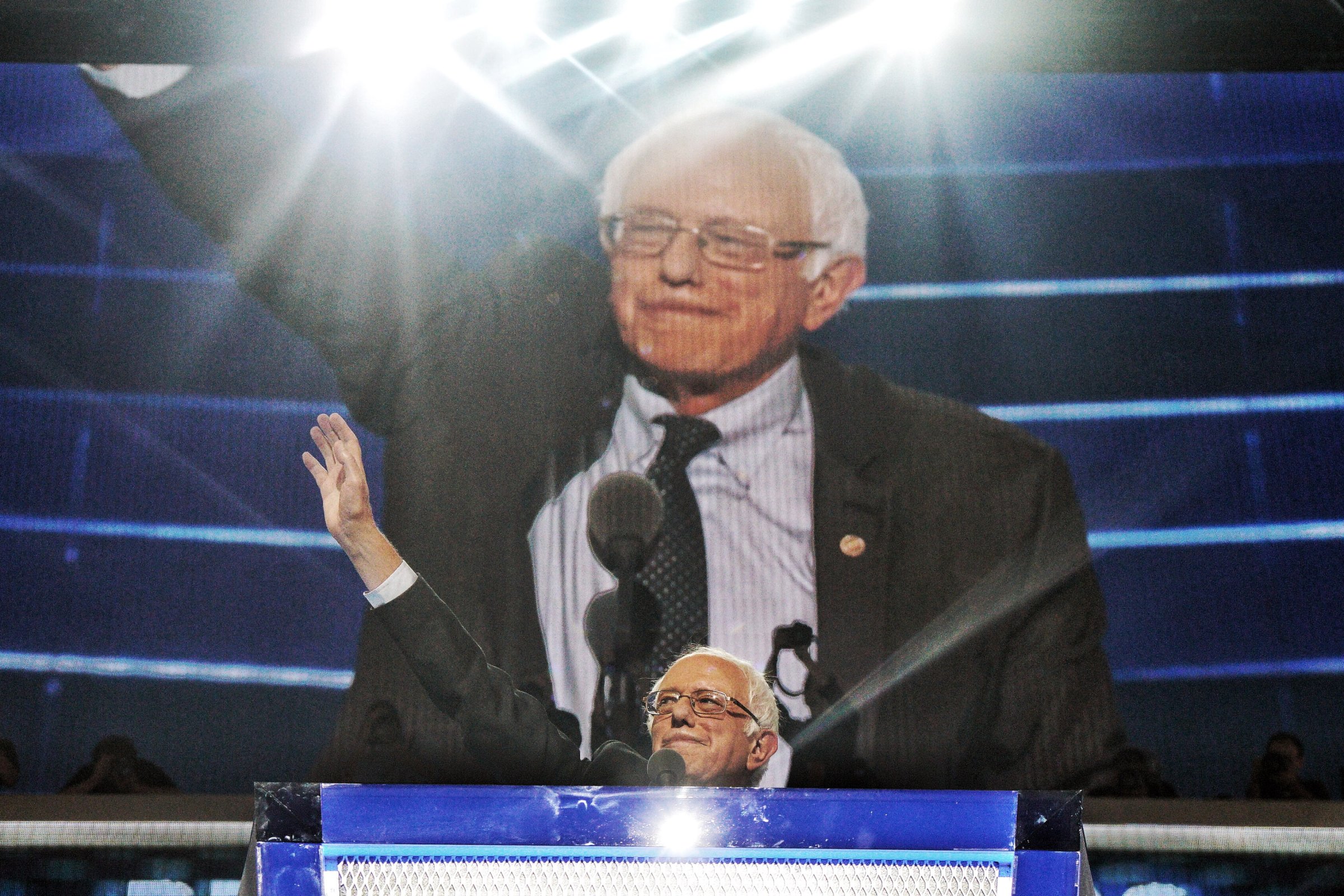
I’ll admit it: over the last year, I’ve felt the Bern. As someone who writes about economics, it was impossible not to. Politics aside, most serious economists now realize that neo-liberal, trickle-down economics is dead. Unless we get the labor share of the overall economic pie up, America will never experience a real recovery. In the “PP era” (that’s post-Piketty), it’s become all too clear that when you have an economy built on consumer spending, and people have less money in their pockets in real terms than they did 20 years, the economic math stops working.
Bernie Sanders didn’t get all the details of this right—his take on the financial system in particular was far too simplistic—but he at least started a conversation that we desperately need to have if we want to move beyond of a 2%-growth economy.
For that reason, I felt for the weeping millennials on the Democratic convention floor Monday night. They are coming into the job market—still a sluggish one, in which the largest chunk of jobs created since the financial crisis are $15 an hour or less—with a record amount of student debt, an issue that will probably become the next subprime crisis. According to a new McKinsey study, if current trends continue, they’ll be the first generation of Americans to do less well than their parents did.
Sanders had three crucial economic planks in his campaign: First, break-up the big banks and properly regulate the financial system. Second, make college tuition free. Third, push back against the excesses of free trade. He’s gotten Hillary to listen on the first two points. The DNC platform now explicitly calls for the break up of Too Big To Fail financial institutions—not a silver bullet for preventing crisis, but a signifigant first step, given that these firms have now simply become too complex to manage. (The market itself values the component pieces of the banks more highly than the whole, a telling signal.)
On the second point, making college free for all Americans, it seems from Monday night’s speech that Bernie made serious progress here, too. While nobody can predict how all the horse trading will play out after the election, Hillary would be wise to take on the student debt crisis. Over the last 34 years, the cost of college in the U.S. has increased by 1,100%. It’s a scandal, and one that is a huge drag on growth. In 2012, for example, it was estimated that 85% of college graduates had to move back in with their parents because they didn’t have a job or one that paid enough to actually enable them to afford a home, a car, etc. No wonder housing starts have been so low for so long. There’s an entire generation of white collar, college graduates who can no longer afford the basics of a middle class life. That’s a huge headwind to stronger economic growth in a consumer driven economy.
Trade is the area where Bernie has, so far, failed to tip the conversation decisively. The DNC wasn’t prepared to come out fully against the Trans Pacific Partnership (TPP), given that it was one of President Obama’s signature deals. But to me, this is the least important of the three big economic issues that Bernie tackled, in part because the nature of trade in changing in such a way that deals like TPP may soon be out of date and irrelevant. Trade in goods and services has been flat for some time now. Old-fashioned trade flows are changing, and being replaced by digital flows (which are up exponentially since 2009, according to another McKinsey Global Institute study).
This changing nature of trade comes with pros and cons. On the plus side, it has allowed more small and mid-size businesses to go global faster, which could potentially make trade fairer and more inclusive. But it also requires policies that support small businesses and entrepreneurs. That’s why getting behind things like portable benefits will be crucial.
Bernie’s economic battles are far from over. But it’s a historic achievement that he has pulled his party away from the broken, laissez-faire economic policies of the past. It will be up to Hillary to show us what a new kind of Clintonomics could look like. If she’s elected, her legacy, and our economy, will depend on it.
More Must-Reads from TIME
- Donald Trump Is TIME's 2024 Person of the Year
- Why We Chose Trump as Person of the Year
- Is Intermittent Fasting Good or Bad for You?
- The 100 Must-Read Books of 2024
- The 20 Best Christmas TV Episodes
- Column: If Optimism Feels Ridiculous Now, Try Hope
- The Future of Climate Action Is Trade Policy
- Merle Bombardieri Is Helping People Make the Baby Decision
Contact us at letters@time.com